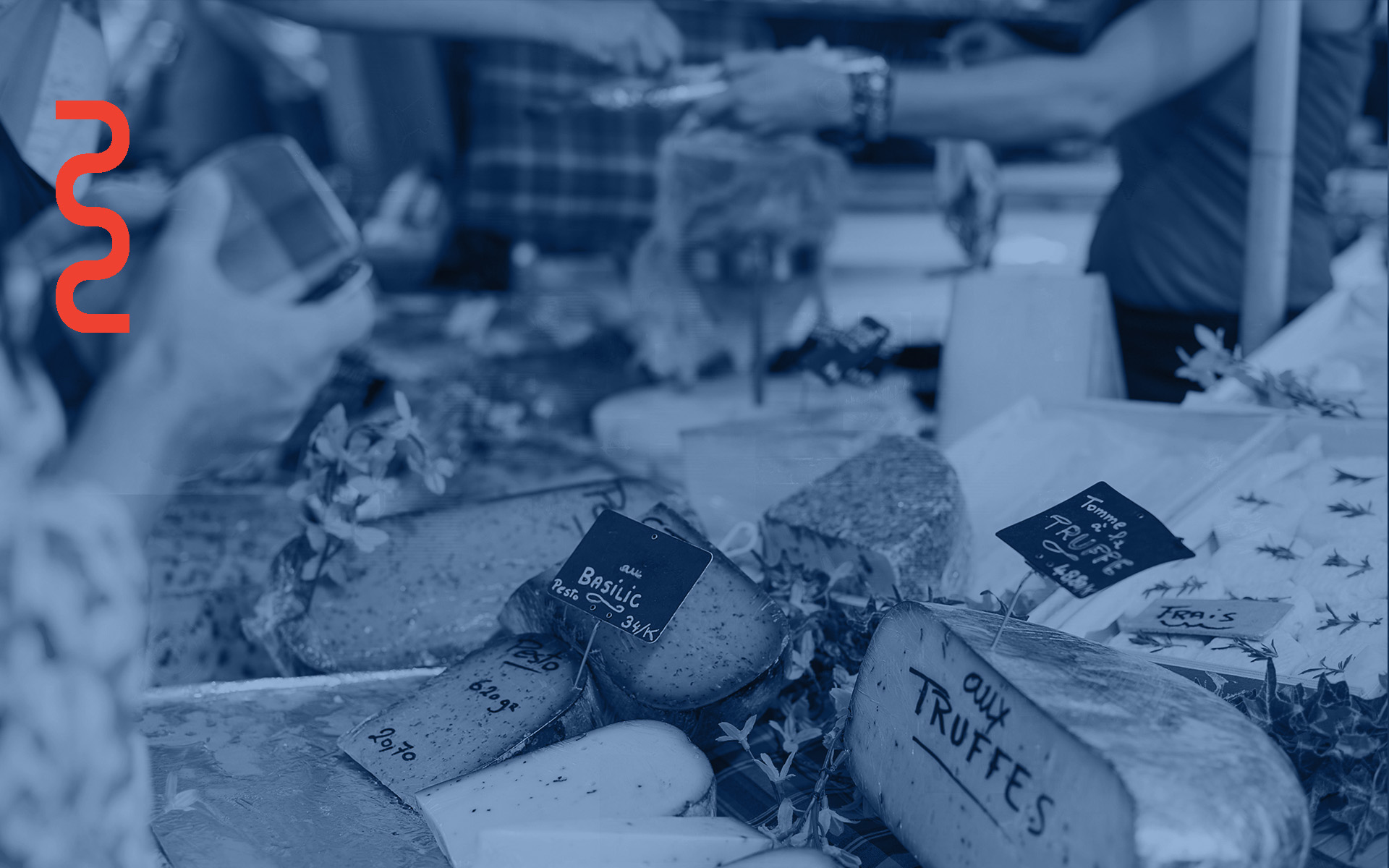In the past decade, a new kind of consumer has arisen, a fusion of myriad tastes and eclectic wants, prone to mixing highbrow with lowbrow, and just a little obsessed with all things unique, crafted, and authentic. This consumer has been dubbed the “cultural omnivore.”
Subscribe:
Mixing a wide variety of genres and readily accepting of craft authenticity, the rise of the cultural omnivore identity brought with it an increased consumer desire for authenticity in everything from fashion brands to restaurants. How to win the heart and wallet of the cultural omnivore? Look no further than gourmet food trucks, which hit a sought-after balance of DIY spirit, twists on tradition, and pop-up intrigue.
Speaking to Delve‘s Robyn Fadden, McGill University Desautels Faculty of Management Professor Daphne Demetry discusses her research on the gourmet food truck trend that took off in 2008 and shows no sign of slowing down.
An entrepreneurship experience high in creativity, culture, and community and low in risk, gourmet food trucks illuminate how authenticity and associated identities are constructed by both business owners and consumers alike. This drive for authenticity sparks broader questions about personal and collective identity creation in urban entrepreneurship and beyond.
Niche innovation origins
Gourmet food trucks emerged in major urban centres beginning with, as the lore goes, chef Roy Choi in Los Angeles. Choi created the Korean taco, drawing on his Korean heritage and the Mexican neighbourhood he grew up in to meld the flavours of the two cultures. “Since then, combining different ethnic cuisines became something unique to gourmet food trucks,” Demetry explains. “The more unique and idiosyncratic the food truck concept, the better.”
As more of these modern food trucks entered the scene, an equation for success emerged: combine a culinary niche with food truck entrepreneurs’ tendency to be more collaborative than competitive.
Elaborating on creative fusion, Demetry points to the pursuit of optional distinctiveness: the idea that producers want to be unique enough to make an impact and find their market niche, without being too unique or too strange. When a business is too innovative, especially in places where innovation isn’t expected or even accepted, such as in smaller cities with consumers who aren’t nearly as adventurous as cultural omnivores, could lead to losing customers.
Those customers are entwined in the gourmet food truck equation too. Looking at data gathered from gourmet food truck entrepreneurs in cities across the United States, Demetry and her co-author, Todd Schifeling, found that people in particular locations are more accepting of craft authenticity if those locations are home to organizations that already espouse craft authenticity, such as farmers markets, microbreweries, and other organizations that have an “ethos of craft.”
Another factor at play in authenticity acceptance is that these customers don’t see gourmet food trucks as a violation of traditional food trucks, but as an original concept.
Factoring for authenticity
“Authenticity is a complicated word, in part because it’s socially constructed and very different by person and by place,” says Demetry. “We might both walk into a restaurant and I say its inauthentic and you say it’s authentic… but there are some general trends to how we define authenticity. More recently, people have thought about it in three veins: connection, consistency, conformity.”
Connection looks at the authenticity of a particular entity or person, such as an authentic wine producing country; consistency considers the alignment between what is presented and what goes on with “the back-stage self,” whether a person or an organization; and conformity looks at whether an object or person fits within an institutionalized category, such as a whether a restaurant is considered authentic to its cultural symbols. All three concepts of authenticity might factor into a consumer’s perception.
Driven on a dime and a dream
The rise in popularity of gourmet food trucks also has a lot to do with what they represent as a business: an affordable way for chefs to explore the life of an entrepreneur without breaking the bank on a brick-and-mortar restaurant. On the other side of the grill is the customer and their desire for new, authentic, and even experimental fusion dishes at an affordable price point.
“What’s really great about gourmet food trucks, underground restaurants, and pop-up restaurants is that they are like incubators for entrepreneurs,” says Demetry. “They allow entrepreneurs to test their ideas and see if there’s an audience, at low expense and low risk.” These lower barriers of entry allow creative entrepreneurs like chefs to not only experiment with ideas but get audience feedback on the spot, on social media, and on review websites.
Making merges in entrepreneurship
“The path for gourmet food truck entrepreneurs isn’t usually straightforward,” Demetry continues. It often combines a chef’s passion for creative food with a nascent yet burgeoning financial know-how.
“Gourmet food trucks emerged post-recession in 2008 in part because people didn’t have the funds to open restaurants in very expensive cities like New York and Los Angeles,” says Demetry. “Now we have a different kind of recession with the pandemic, and what it means to dine at a restaurant has changed quite dramatically. This might be an opportunity for gourmet food trucks to flourish again.”
While gourmet food trucks have flourished in certain cities and some chefs have made the transition from food truck to their own brick-and-mortar restaurants, the willingness to invest in entrepreneur chefs has also increased.
Why that is may come down to what gourmet food trucks stand for as businesses and even brands, especially to today’s ever-evolving consumers. Their inherent drive for authenticity continues to summon much bigger questions about personal and collective identity in a world where the next big trend could be parked right around the corner.
For more insights, listen to the full interview with Professor Daphne Demetry on the Delve podcast.
Read the transcript for this episode.
This episode of the Delve podcast is produced by Delve and Robyn Fadden. Original music by Saku Mantere.
Delve is the official thought leadership platform of McGill University’s Desautels Faculty of Management. Subscribe to the Delve podcast on all major podcast platforms and follow Delve on LinkedIn, Facebook, Twitter, Instagram, and YouTube.














